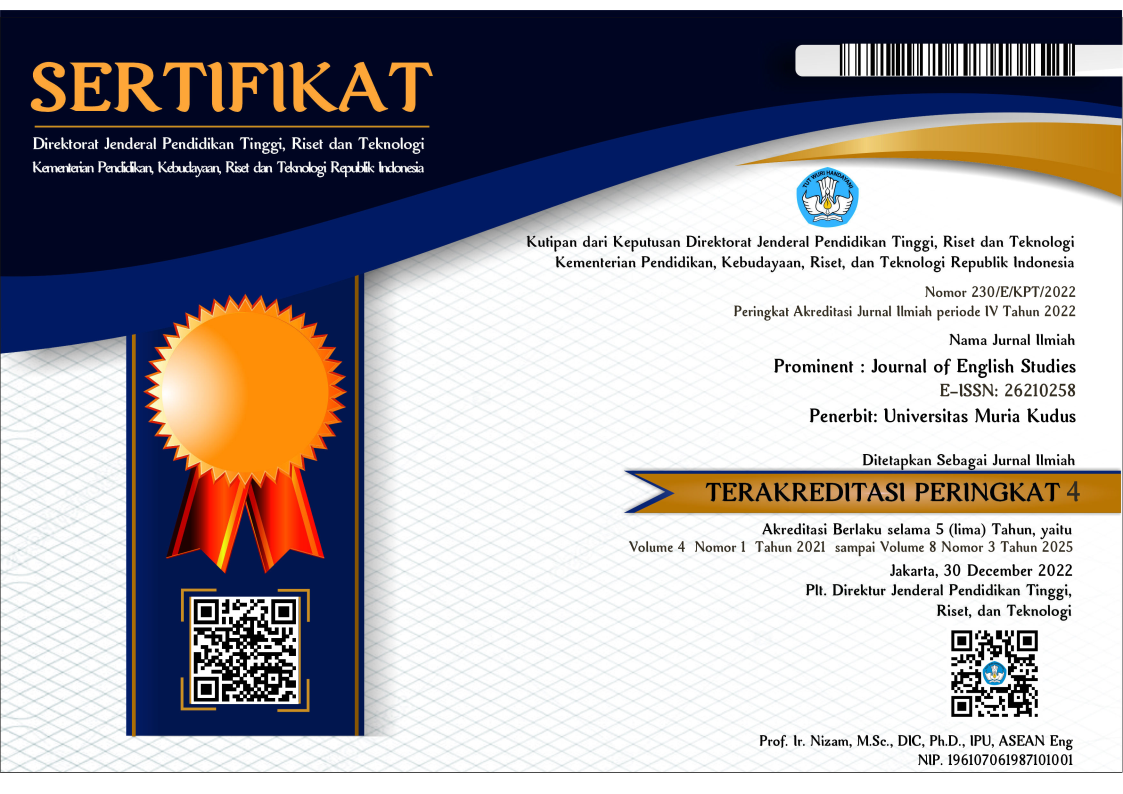ENGAGING STUDENTS IN READING BY ANALYZING CHARACTERS AS A PART OF EXTENSIVE READING ACTIVITY
Abstract
This article discusses about character analysis of a story as a part of Extensive Reading to engage students in reading activity. The writer used qualitative approach to conduct this research by analyzing their works and arguments after the task given, and there were 95 students of English Education Department as the participants. In order to get the data, there were two main sources, the students’ analysis and their written comments on the work. To maintain the concept of Extensive Reading, the students had to read the story and gave their analysis freely on a paper. They also had to write their comment toward the story in several sentences. The result revealed that students could express their ideas and creativity on the paper as well as their capability in creating English sentences. Besides, they could increase their self-confidence because of their ability in reading and analyzing the English story.
Full Text:
PDFReferences
Bamford, J., & Day, R. R. (2004). Extensive reading activities for language teaching. New York.
Connel, G. (2012). Teaching Character Traits in reader’s Workshop. Retrieved from https://www.scholastic.com/teachers/blog-posts/genia-connell/teaching-character-traits-readers-workshop/ on August 5, 2018
Dickinson, David K., et al. "How reading books fosters language development around the world." Child development research2012 (2012).
Ferdila, R. (2016). The Use of Extensive Reading in Teaching Reading. Journal of English and Education, 2(2), 68-80.
Hudson, R.F., Mercer, C.D., & Lane, H.B. (2000). Exploring reading fluency: A paradigmatic overview. Unpublished manuscript, University of Florida, Gainesville.
Krashen, S. D. (2004). The power of reading: Insights from the research: Insights from the research. ABC-CLIO.
Mar, R. A., & Oatley, K. (2008). The function of fiction is the abstraction and simulation of social experience. Perspectives on psychological science, 3(3), 173-192.
Renandya, W. A. (2007). The power of extensive reading. RELC Journal, 38(2), 133-149.
Richards, J. C., & Schmidt, R. (2010). Longman dictionary of language teaching and applied linguistics (4th ed.). London: Longman (Pearson Education).
Sofa, E. M. (2018). Islamic Values in Higher Education Students’ Communication in Edmodo Learning Platform. Edukasia Islamika, 3(1), 54-69.
Teaching and Researching Reading. (2002). William Grabe and Fredericka L. Stoller. London: Pearson Education Longman.
www.erfoundation.orgDOI: https://doi.org/10.24176/pro.v2i1.2539
Refbacks
- There are currently no refbacks.
Prominent Journal of English Studies is licensed under a Creative Commons Attribution-ShareAlike 4.0 International License.
Dedicated to:

in Collaboration with APSPBI:





